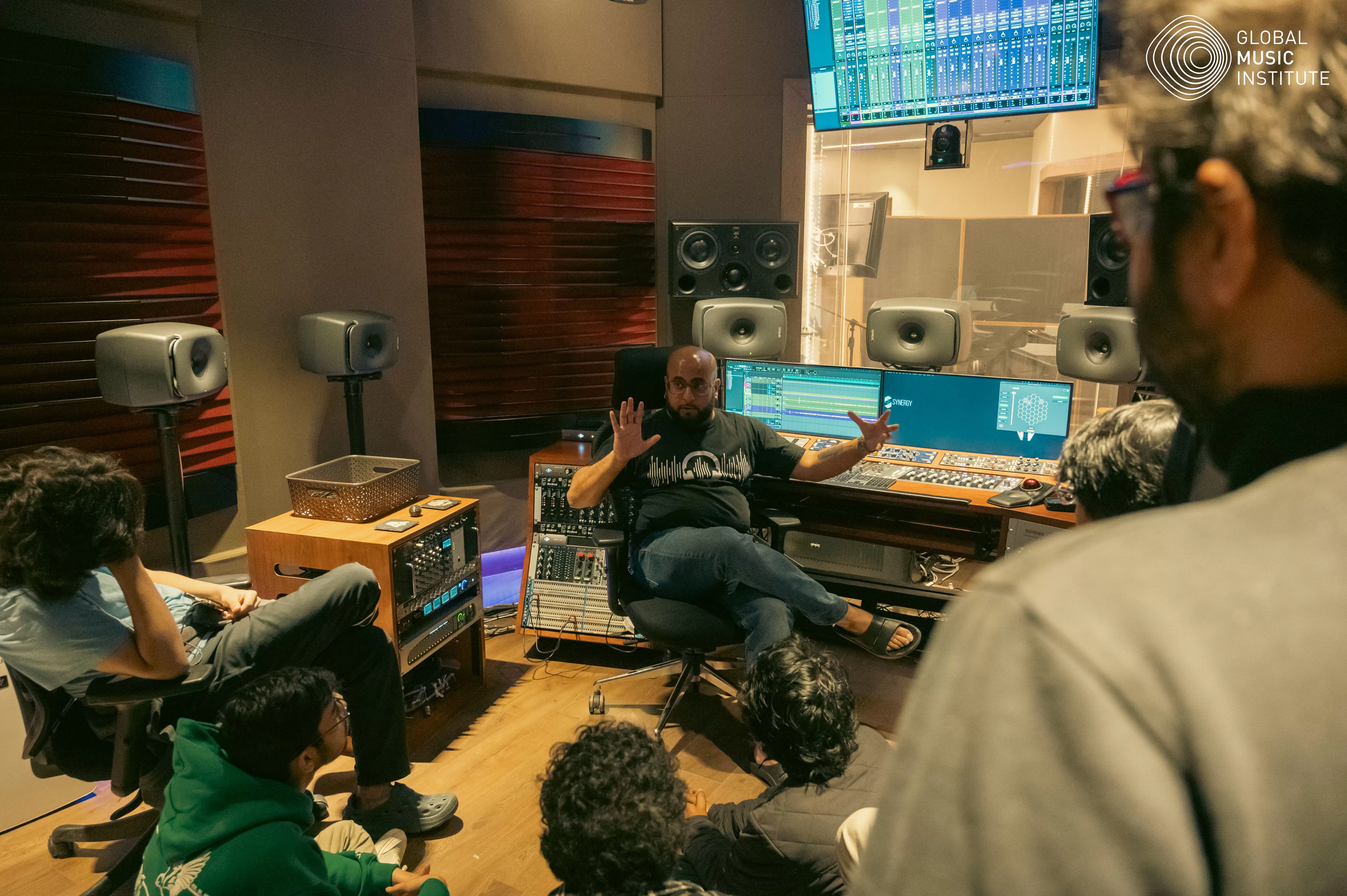Exploring Diverse Career Paths in Music: Beyond Performance
Written by Aldred Gomes (Career Counsellor)
Edited by Sohaib Durrani
The music industry focuses primarily on performing musicians, but includes a large, intricate array of professional support functions. This article discusses the many diverse activities that exist apart from the performance, showing how the modern music marketplace is increasingly more complex and specialized. There are several functions ranging from business and artist management to creative activities of content design and technical production that add to the perpetual motion of the music world. In this regard, we look at business and management functions, creative content production, technical production, education and therapy, legal regulation of the music and publishing, marketing, and archiving. Anyone wanting to enter or progress in the vast world of music will need to know about these different career alternatives and understand that numerous opportunities exist besides donning the garb of a performer on stage.
Artist Management
The practice of an artist goes beyond the mere action of producing music. Managers of musicians function as the primary contact point for business activities relating to the day-to-day operations of an artist’s career. They manage a highly diverse portfolio of activities including key areas of responsibilities like public relations and marketing along with scheduling business appointments and managing transactions. Such professionals may be associated with management agencies, record companies, or they may work autonomously as independent managers.
To effectively fulfil these diverse responsibilities, successful artist managers nurture a specific set of attributes. They must genuinely believe in their clients and their artistic work, possess a thorough understanding of the intricacies of the music industry, and exhibit strong interpersonal skills, being both outgoing and professional.
At GMI, we actively collaborate with artist management firms that play a vital role in shaping the careers of musicians across genres. Our partners—UnderTheRadar and REPRESENT—are key players in the Indian music industry, engaging in everything from artist development to navigating emerging trends.
We encourage you to explore their work to get a closer look at what goes into managing artists and what it takes to build a successful career in this field.
For more such industry connections, visit our Career Development Division, designed to bridge the gap between students and real-world opportunities in music.
Music Journalism
The diffusion of news and stories about the music industry, keeping the public informed about their favourite musicians, is the vital role of music journalists. These experts utilize various channels to reach their audience, including print publications, video platforms, and audio formats. Music journalists can be employed by a diverse range of entities, such as online blogs, recognized magazines, podcasts, wide-ranging websites, or even television and online broadcasts. Their responsibilities are comprehensive, surrounding the review of live performances and newly released music, in-depth reporting on developing trends within the music industry, conducting astute interviews with artists and bands, and crafting appealing biographical narratives that provide deeper insight into the lives and journeys of musicians.
We’ve had the opportunity to feature insightful conversations with artists such as The Tapi Project, Advaita, and Dot to name a few, offering a closer look into their creative journeys and musical philosophies. Head over to our Artist Spotlight category to explore more interviews and stories from the heart of the music scene.

Music Therapists
Music therapy is a dedicated and rewarding field that combines a profound passion for music with healing techniques to help individuals overcome a wide range of physical, emotional, and social difficulties. Music therapists plan, shape, direct, and evaluate clinical and evidence-based music therapy interventions with the goal of positively influencing individuals’ physical, psychological, cognitive, or behavioural status. The clients they work with can span all age groups and may have situations ranging from emotional or mental illness and learning or physical disabilities to developmental disorders, life-limiting conditions, neurological conditions, or physical illnesses.

The undergraduate curriculum for music therapy generally includes coursework in music therapy principles and methods, psychology, music theory and history, biological, social and behavioural sciences, an understanding of disabling conditions, and general studies.
Music Producers
The process of transforming a musical idea into a finished recording involves a variety of steps, and at the core of this process lies the music producer. Music producers are finally responsible for handling the entire recording, mixing, and mastering stages of songs and albums. They work in close partnership with artists to help them realize a specific aural vision for their music and often contribute to the inspired process by assisting with song writing and arrangement. The music producer aids as the creative driving force behind numerous iconic albums and songs, and their effect can be felt across almost in every genre of music.
 GMI Students at Synergy Audio Productions, one of GMI’s industry partners with state of the art facilities and recording equipment in Gurugram.
GMI Students at Synergy Audio Productions, one of GMI’s industry partners with state of the art facilities and recording equipment in Gurugram.
Recording Engineers
Recording engineers play a very crucial part where every single original recording of a piece of music is preserved. Recording engineers ensure that every performance note is captured. They are also known as the technical wizards working on the instruments. They make sure that every note is captured with the proper levels and cleanly without any distortion or dilution. Their responsibilities include properly setting up and troubleshooting the recording equipment, capturing the right mics and other pieces of , songwriting equipmen, and finally doing the mixing and editing of the recording.
 In-house studio at Global Music Institute
In-house studio at Global Music Institute
Just like in any occupation, the starting difficulty separating the prospects from the experienced professionals is knowledge and education. In this case, having a complete understanding of the principles in sound phenomena, acoustics, and more is vital, especially along with signal flow is critical. Also, having experience with a multitude of recording and mixing tools and software is crucial.
At GMI, we regularly feature students performing live covers from a diverse selection of songs as part of our GMI Jukebox series. These sessions are recorded in our on-campus studio and mixed by our very own music production students. This hands-on approach gives learners the opportunity to experience the full scope of the professional recording process—from setup to final mix—just like it’s done in the real world.
This article discloses the extraordinary variety of career paths available within the music industry that goes far beyond the out-of-date image of the performing artist. From the tactical minds in production and management to the healing forces of music therapy, each of these roles is essential to the vibrant and complex world of music. The analysis underscores the dynamic and ever-evolving nature of the music industry, continuously generating new opportunities for individuals equipped with the right skills, knowledge, and, most importantly, a genuine passion for music in all its forms.